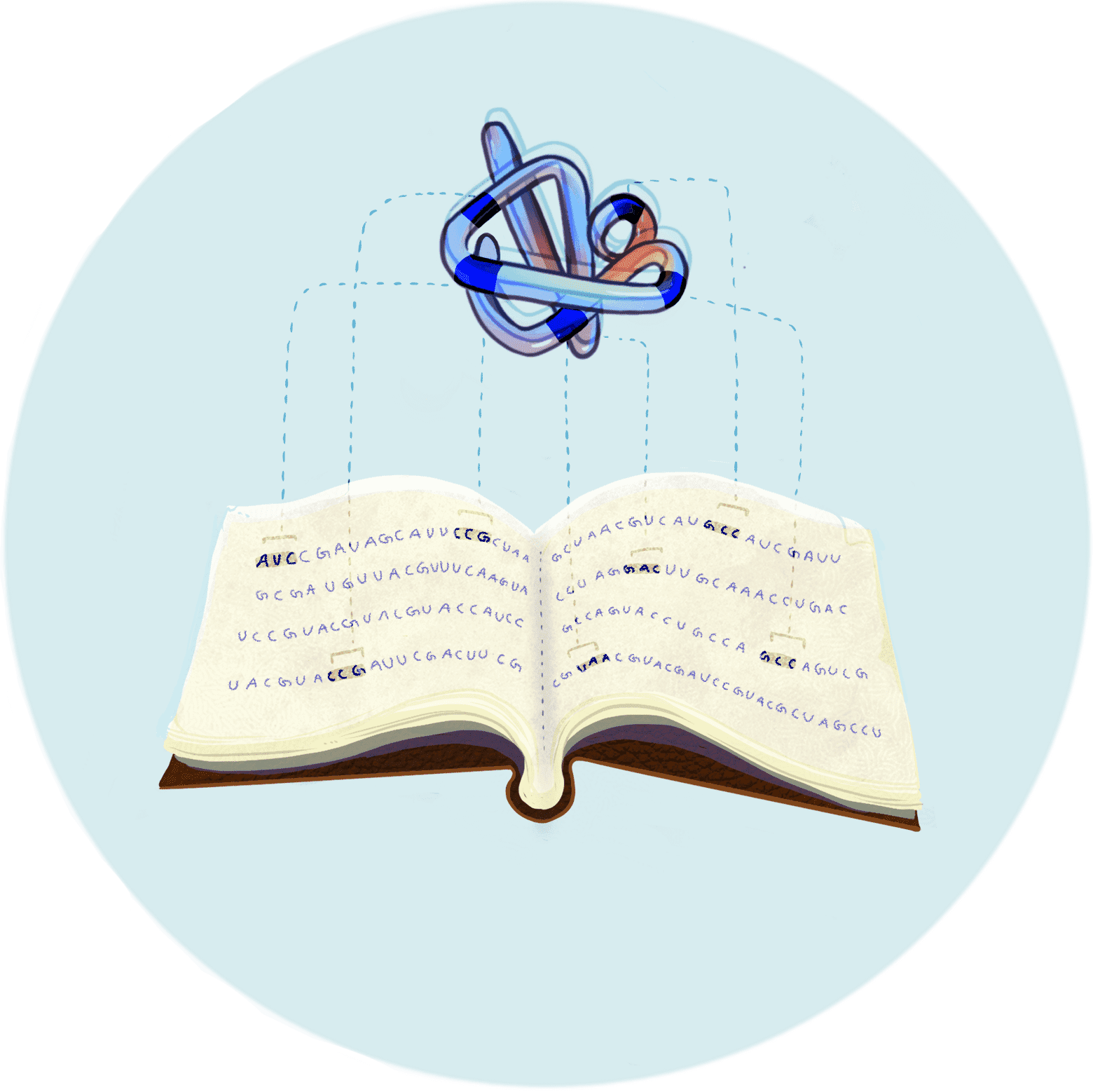CRISPR Made Simple Glossary
Look up or review key terms and concepts used in CRISPR Made Simple.
APPLIED RESEARCH – Research that uses scientific knowledge to solve problems in everyday life. Applied research often involves making new medicines, machines, and tools.
BACTERIA/BACTERIUM – A type of one-celled organism. Bacterium is the singular form of bacteria, referring to just one bacterial cell.
BACTERIOPHAGE – A type of virus that infects bacteria.
BASIC RESEARCH – Scientific research that answers questions about how the world and living organisms work.
BIOLOGY – The study of how organisms live, grow, and interact with each other and the environment.
CELL – The building blocks of life. All organisms are made of one or many cells.
CLIMATE CHANGE – Big changes to the planet in things like temperature, rain, wind, and storms. Climate change doesn’t refer to just one day of unusual weather, but changing weather patterns over time.
CLINICAL TRIAL – A test with volunteer participants that looks at whether a new medical treatment is safe and works well.
CRISPR – A tool for gene editing that is made from the immune system of bacteria and other one-celled organisms.
CROP – A plant grown in farms for food.
DATA – The information scientists gather from observations and experiments.
DISEASE MODEL – Cells or whole organisms that are made to have some features of a disease. Disease models are used to study diseases and treatments in labs.
DNA – The instruction manual that tells each cell what to do, sometimes called “the code of life.” DNA is made of four different kinds of building blocks represented by the letters A, T, C, and G.
ETHICS – Thinking and talking about whether things we do are good and bad or right and wrong.
GENE – A piece of DNA that codes for a single protein. A gene is made of a sequence of DNA letters.
GENE EDITING – Taking out, adding, or changing DNA letters on purpose. Since the DNA letters in genes control traits, a scientist can change an organism’s traits by editing its DNA.
GENE VARIANT – Differences in the DNA letters of the same gene. Variants can be helpful, harmful, or have no effect at all.
GENETIC DISEASE – A disease caused by at least one harmful gene variant.
GENOME – The collection of all of the genes in an organism.
GERMS – A casual way to refer to one-celled organisms like bacteria, archaea, and some fungi, as well as viruses.
HEREDITY – Passing traits from parents to children. Genes are the unit of heredity.
IMMUNE SYSTEM – A set of tools organisms use to fight off harmful germs.
LAB – A place where scientists do experiments with special equipment (short for “laboratory”).
ORGANISM – A living creature. An organism is made of one or many cells.
PEST – An insect that eats the leaves, fruits, or other parts of a plant.
PESTICIDE – A chemical that kills pests.
PHAGE – A shortened name for “bacteriophage,” a type of virus that infects bacteria.
POPULATION GROWTH – An increase in the number of people living in a certain place.
PROTEIN – One of the main building blocks of cells. Proteins do most of the jobs in a cell.
SCIENCE – A set of methods for studying the natural world.
SELECTIVE BREEDING – A process where farmers can slowly make organisms with the traits they want. Over many generations, they keep picking and breeding organisms with some of the traits — and the gene variants — they want, resulting in significant changes in the organism over time.
TRAIT – A characteristic of an organism that is shaped by genes, for example, hair color.
VIRUS – An infectious agent that uses other organisms to replicate its genetic material and make more virus copies.
Writing & Creative Direction
Hope Henderson holds a B.A. in Biology from Brown University and a Ph.D. in Molecular & Cell Biology from the University of California, Berkeley. She joined the IGI in 2019 to work in science communication. In addition to serving as IGI’s main writer, she plans content strategy and manages IGI’s social media, illustration, and translation.
SHARE PAGE
